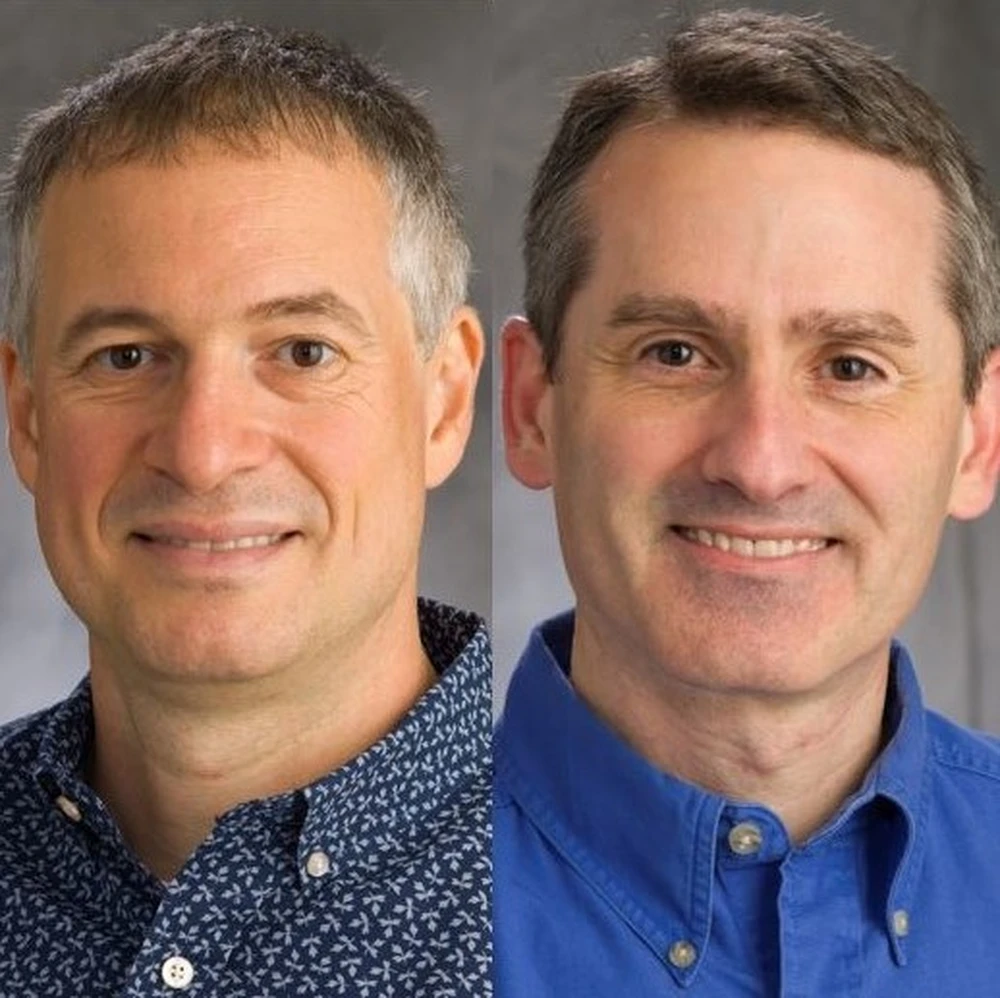
The latest round of awards from the Discovery Fund will support two research projects that will facilitate the expansion of DNA enzyme catalysis and development of novel imaging agents to be used in MRI scans for neurodegenerative diseases like Alzheimer’s.
The Discovery Fund was established in 2018 to provide funding for innovative research in the Department of Chemistry and is generously supported by a gift from chemistry alumni Ving Lee (PhD, ‘75, Rinehart) and May Lee (PhD, ‘76, Rinehart).
To offset the shrinking availability of federal and state funding for starter projects, the Chemistry Discovery Fund enables Illinois chemistry faculty to explore fresh ideas by applying for overhead-free grants for new projects.
- Professor Scott Silverman will use the support to expand DNAzyme catalysis for reactions of small-molecule substrates. DNAzymes are artificial single-stranded catalytic DNA sequences, analogous to natural protein enzymes as catalytic amino acid sequences. The goal of the project is to use in vitro selection to identify new DNAzymes that bind to small molecules and catalyze their modification by various reactions. Such DNAzymes will have interesting and useful catalytic properties, such as selectivity among multiple instances of the same functional group.
- Professor Liviu Mirica will use the support for research to develop novel magnetic resonance imaging (MRI) contrast agents that can cross the blood-brain barrier (BBB) for diagnostic applications in neurodegenerative diseases. Recently, we have developed BBB-permeable 64Cu-radiolabeled PET imaging agents for the in vivo detection of Aβ plaques in AD transgenic mice vs WT mice. This proposed work is novel, since no BBB-permeable MRI contrast agents for neurodegenerative diseases have been developed to date.
The Lees wanted to support the Discovery Fund to help counter the downward trend in funding for discovery-based research.
“I am a firm believer that academic discoveries need paths to monetization, some earlier versus later,” Ving said at the time that the fund was established. “As Illinois has a rich history in converting academic discoveries to practical applications, it is a pleasure to provide financial support for such opportunities.”
May said she hopes that the competition among researchers for each round of Discovery funding will increase recognition for her alma mater.
“For me, the Discovery Fund is to encourage and foster pioneering research, that ultimately contributes toward building and maintaining the Department to be recognized as the very best in the country,” she said.